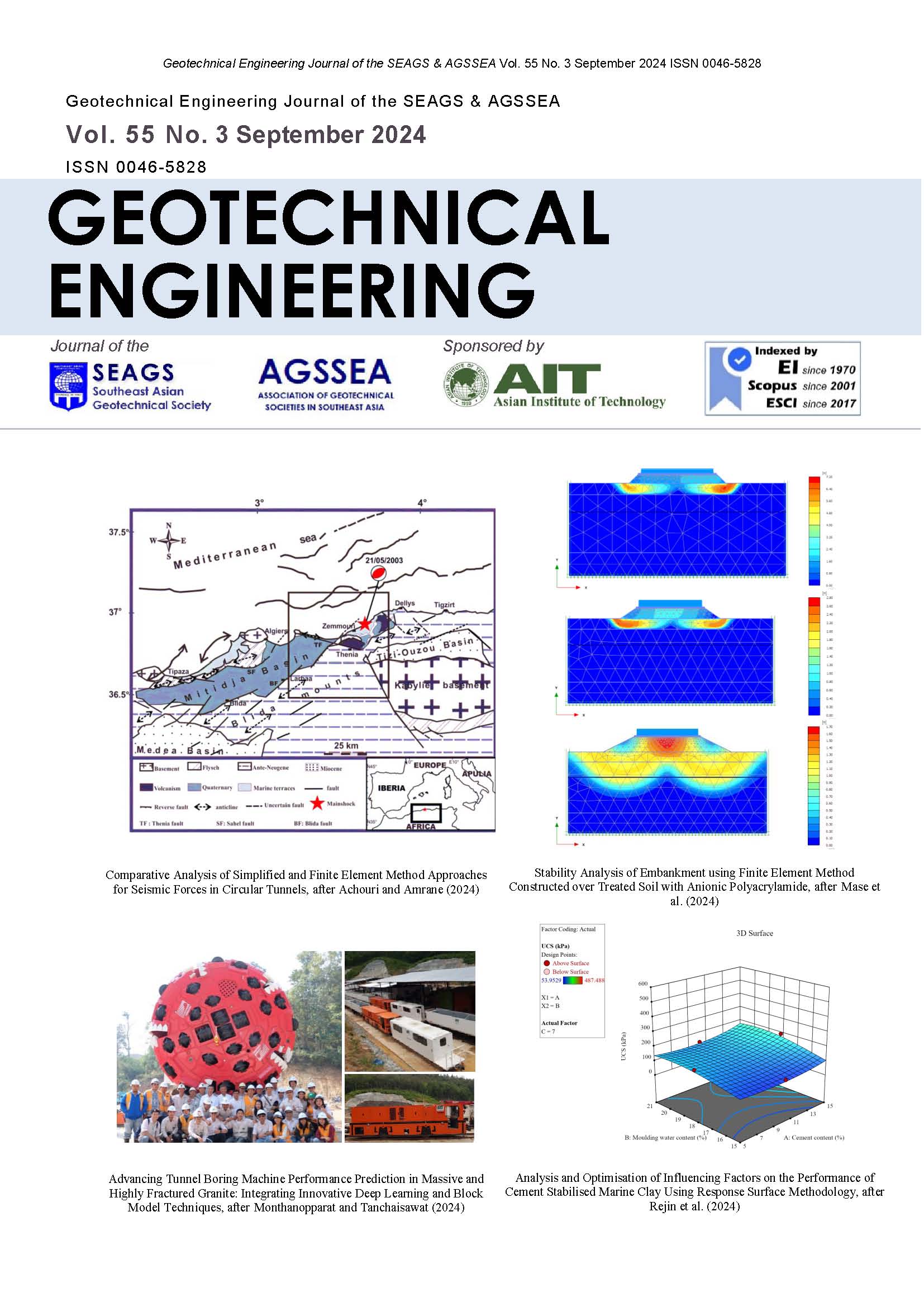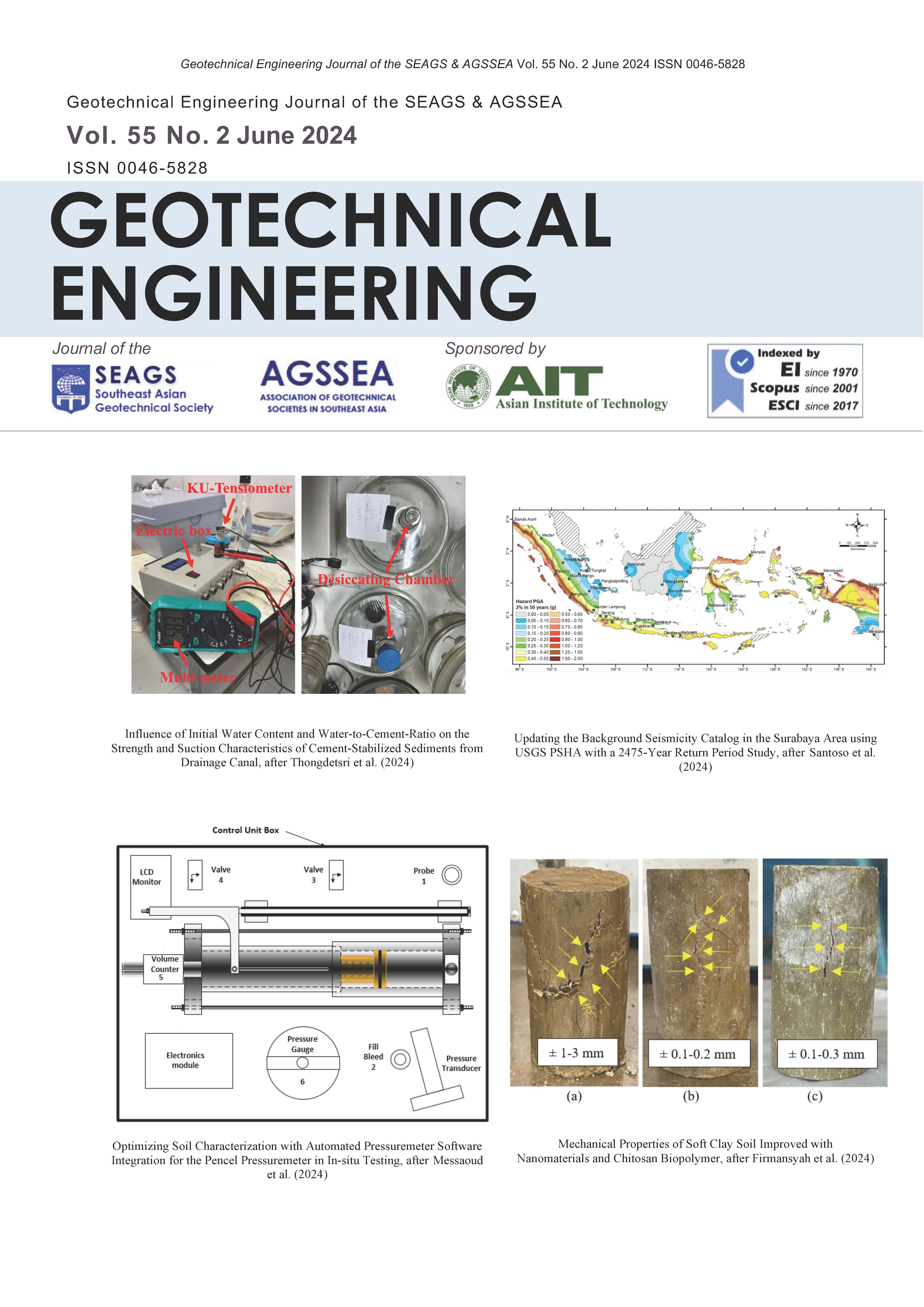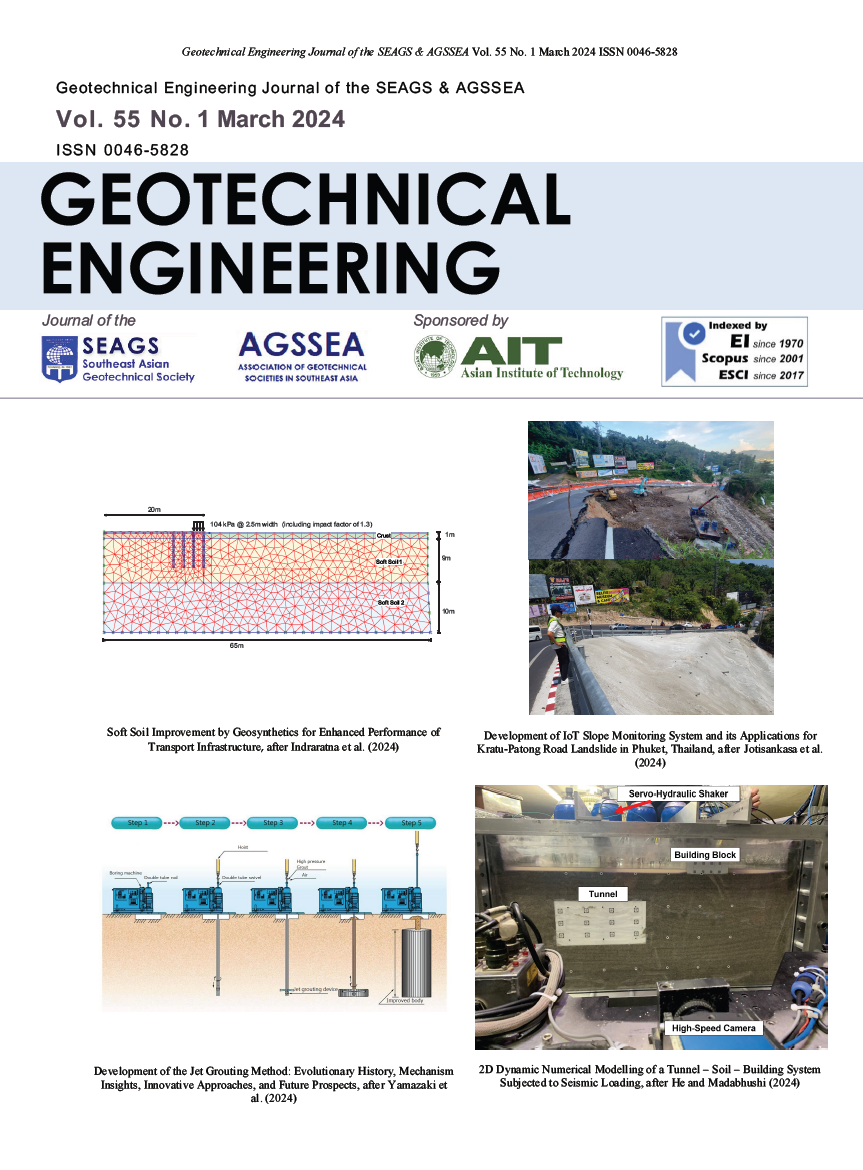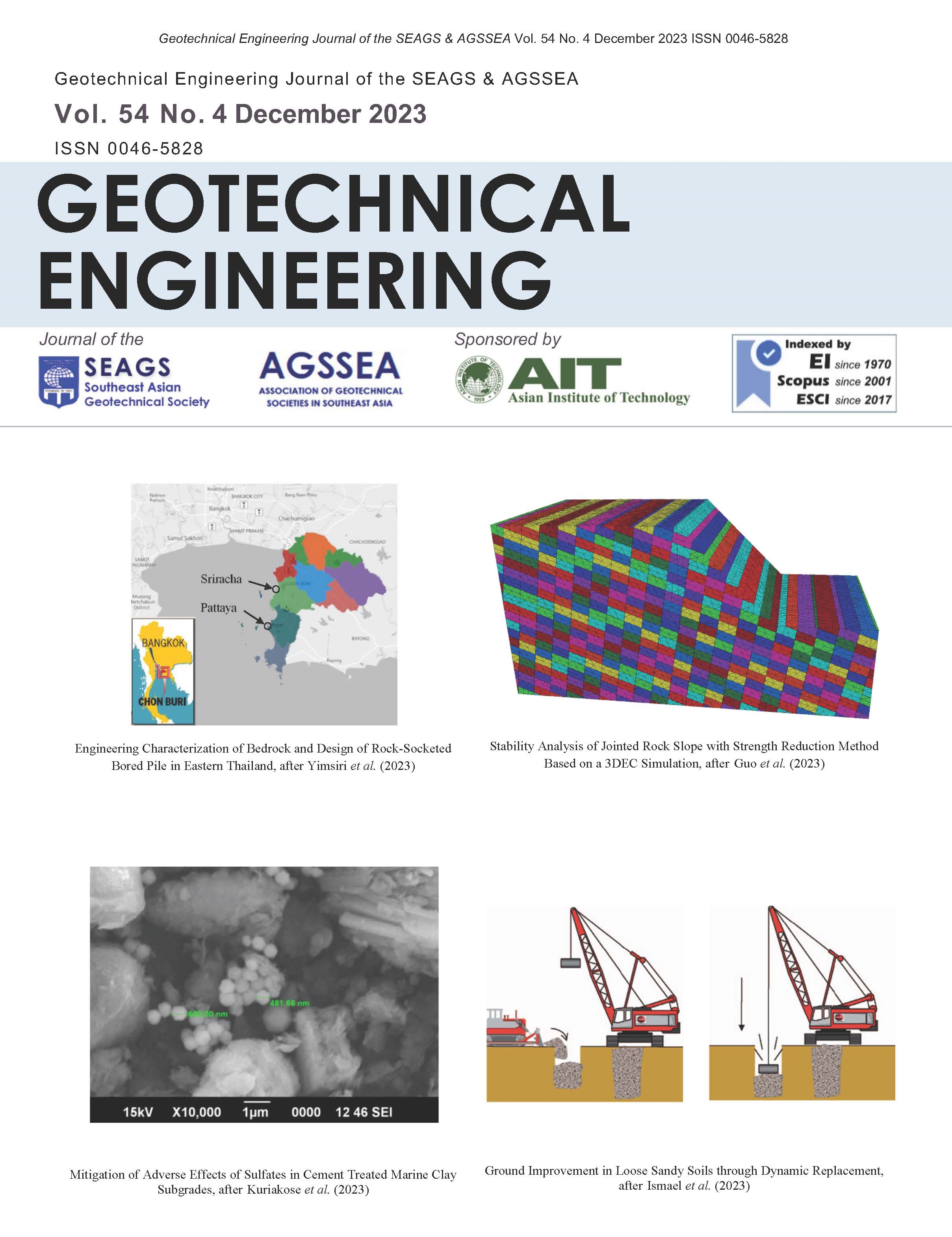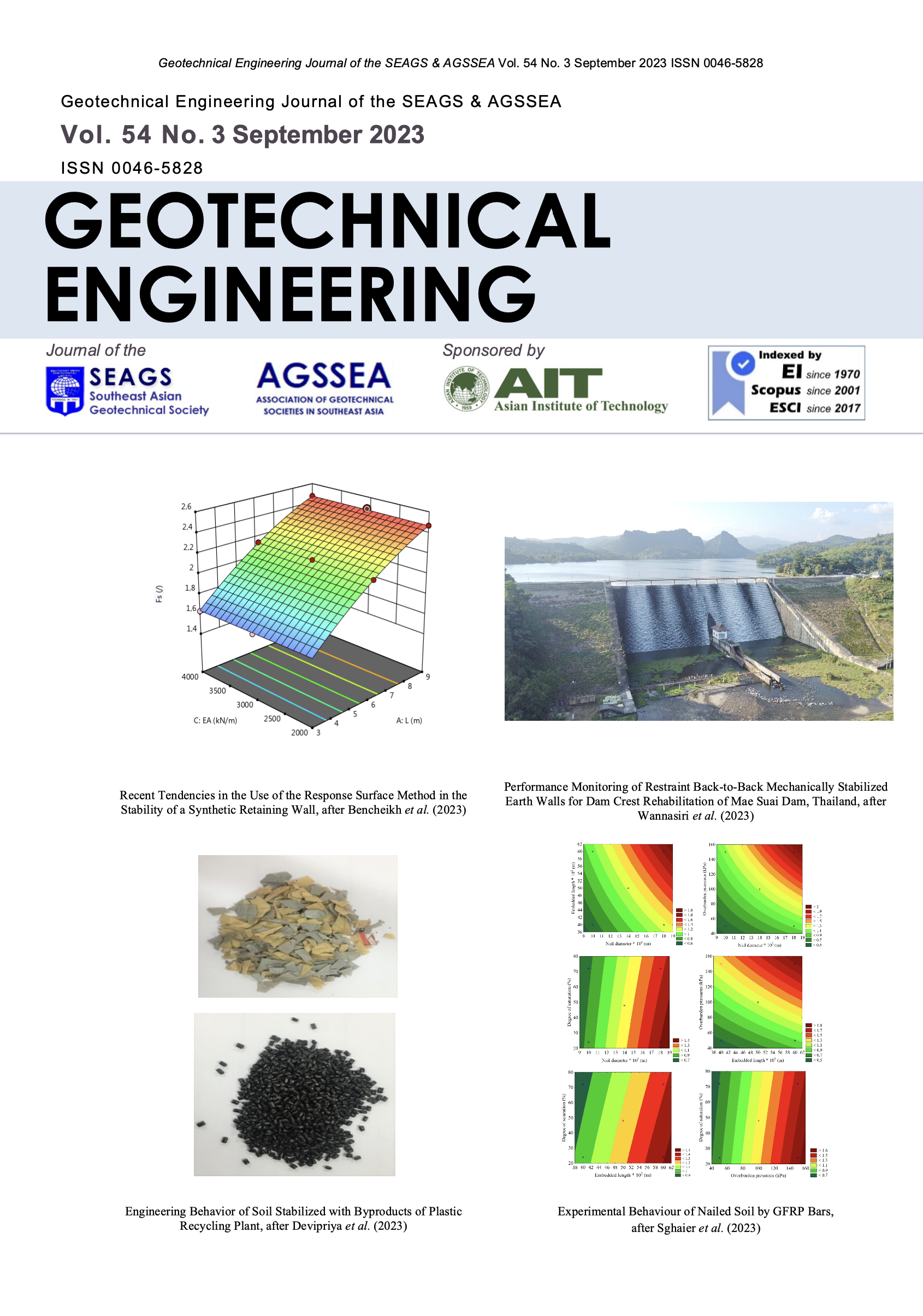Geotechnical Engineering Journal of the SEAGS & AGSSEA ISSN 0046-5828
Vol. 43 No.3 September 2012
Diffusion of phenolic compounds through an HDPE geomembrane
N. Touze-Foltz, M. Ahari, M. Mendes, C. Barral, M. Gardoni and L. Mazeas
ABSTRACT: The experimental results obtained regarding diffusion through a high density polyethylene geomembrane of phenol, o-cresol, p-cresol, 2,4-xylenol, 3,4-xylenol, 2-chlorophenol, 4-chlorophenol, 2,4-dichlorophenol, 2,4,6-trichlorophenol, 2,3,4,6-tetrachlorophenol, 2,3,5,6-tetrachlorophenol, pentachlorophenol and bisphenol A are presented. Partitioning coefficients range from 0.3 to 205 respectively for phenol and pentachlorophenol. Diffusion coefficients lie in the range 1.1×10 -13 to 4.3×10 -13 m 2 /s respectively for 2-methylphenol and bisphenol A. The effect of aqueous solubility, n-octanol/water partitioning coefficient, molecular diameter and molecular weight on partitioning coefficient, diffusion coefficient and permeation coefficient were studied. Different trends from the ones previously given in the literature for volatile organic compounds (VOCs) were observed. An increase in the number of chlorine atom on the phenolic nucleus results in an increase of the partitioning coefficient and permeation coefficient, probably linked to the polarity of the molecules under study.
KEYWORDS: Diffusion of Phenolic Compounds, HDPE Geomembrane









